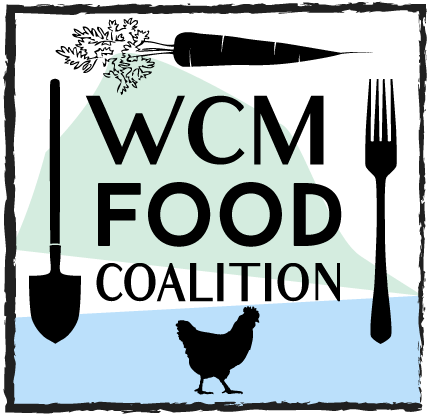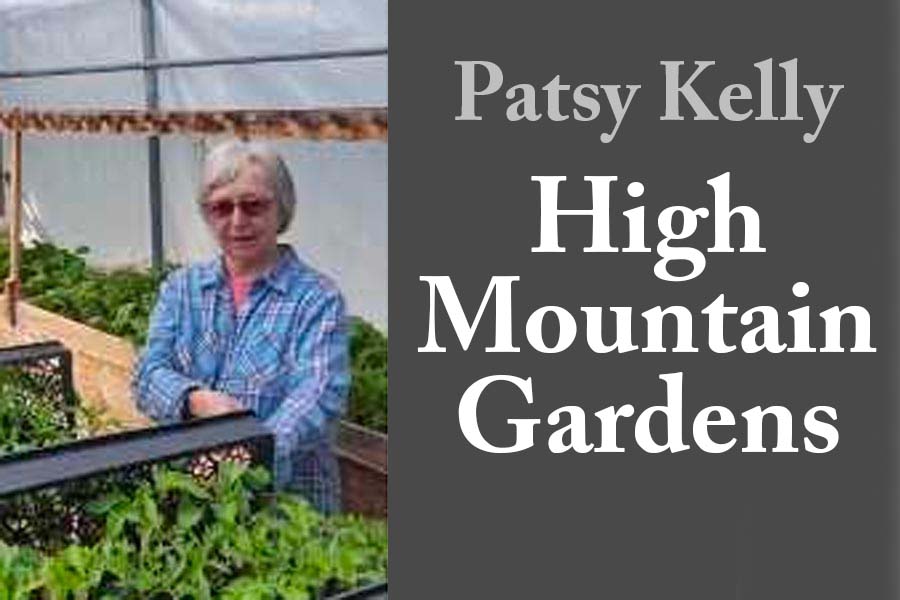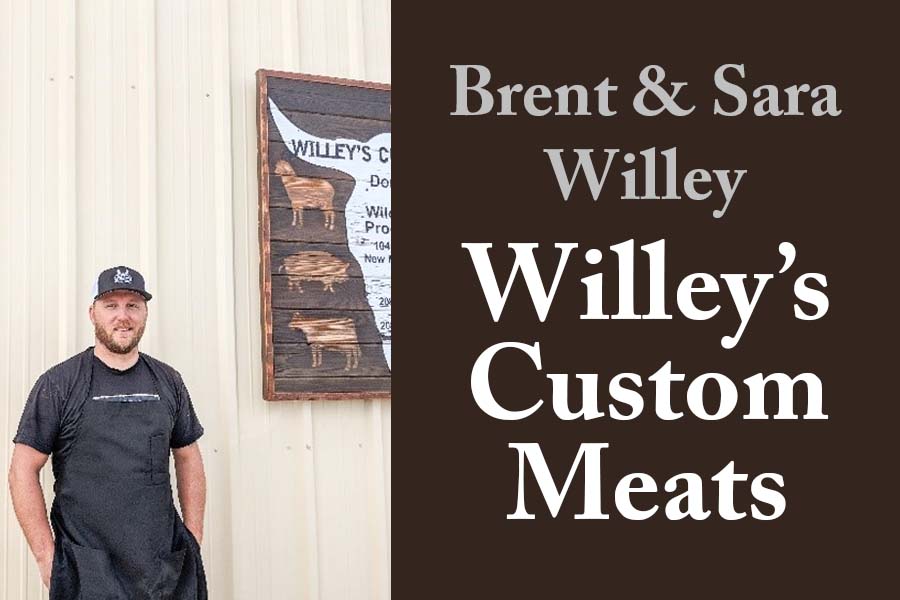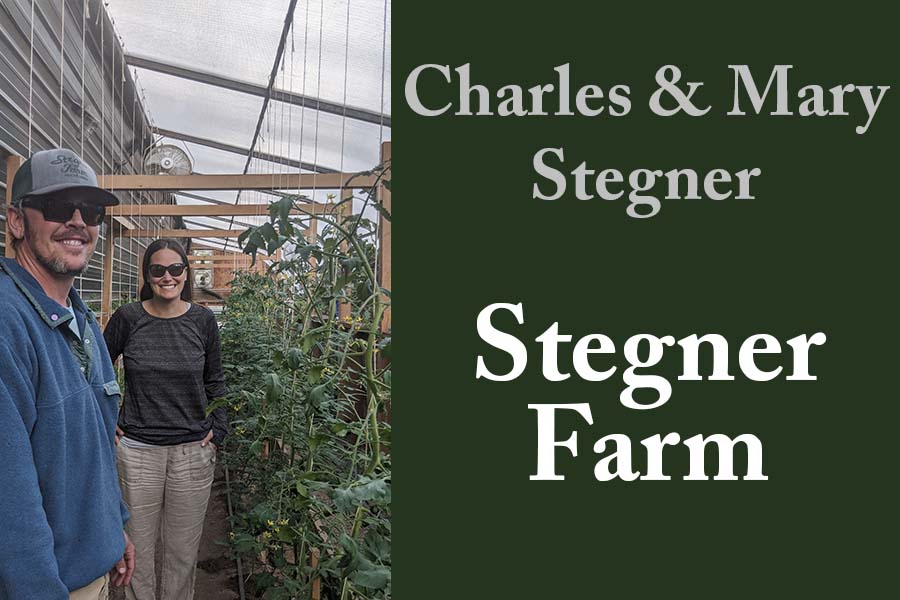
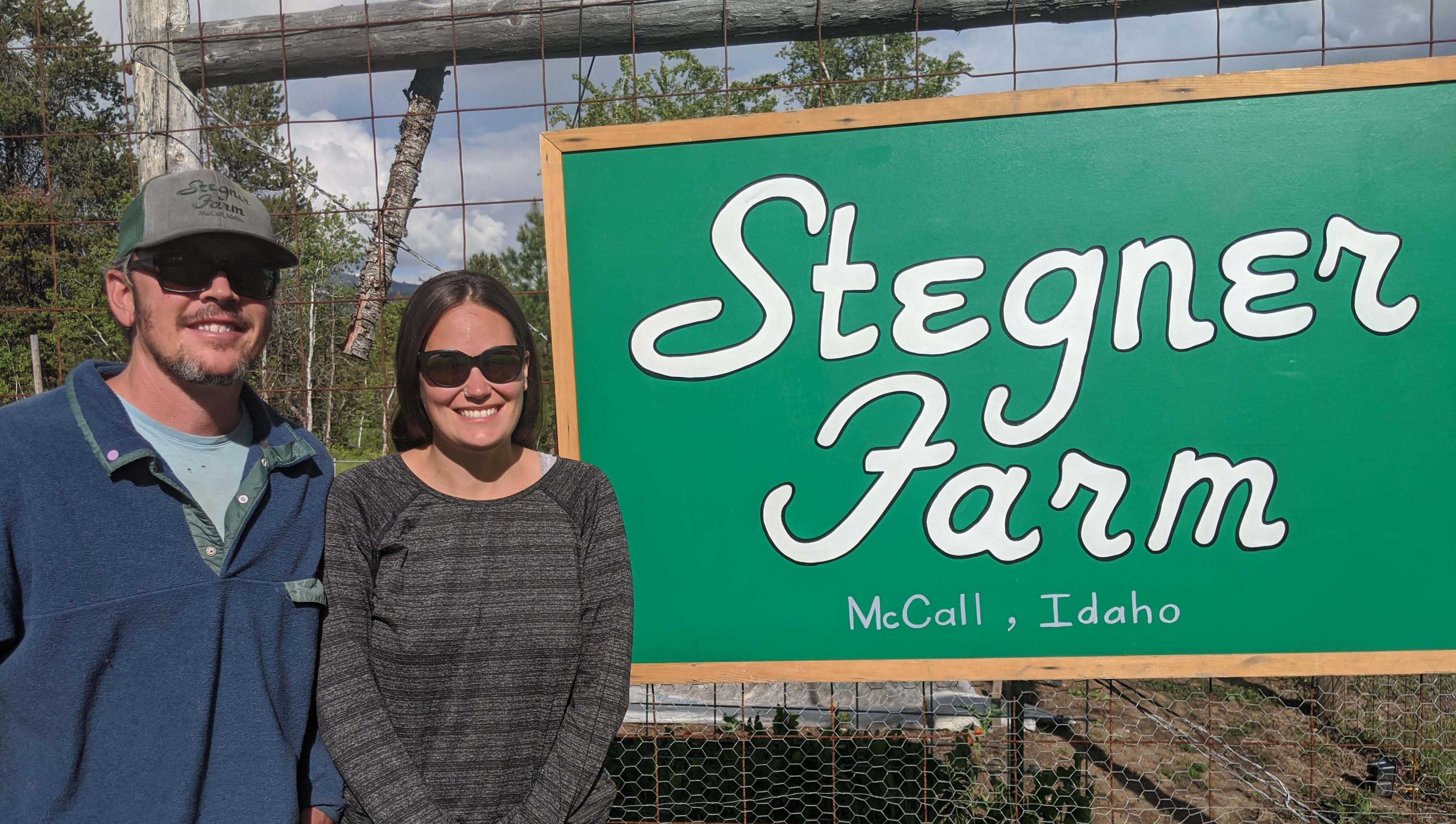
Stegner Farm
OWNERS: Charles and Mary Stegner
ADDRESS: 73 Finn Church Ln, McCall, ID, 83638
PHONE: 208-629-6849
EMAIL: stegnerfarm@gmail.com
WEBSITE: stegnerfarm.com
YEARS IN BUSINESS/ESTABLISHED DATE: 2017
NUMBER OF EMPLOYEES: 2
WHAT THEY SELL: Vegetables, herbs, flowers, and plant starts
WHY YOU SHOULD LOOK FOR STEGNER FARM AT THE MARKET: Local really is better. Not only are you putting your money back into the community, your vegetables are going to last because they were grown and harvested down the road. We also grow without any chemical herbicides or pesticides. The competition (grocery stores) has produce that was trucked hundreds of miles and has been sitting on the shelf for who knows how long.
Stegner Farm is located on 6 acres about 10 miles south of McCall. We farm less than one acre of our land, with our biggest growing area being our summer outdoor garden. We also have a geothermal greenhouse, and we just added a traditional caterpillar tunnel to our operation this spring which is providing us with more season extension. We are a fairly traditional market garden growing a wide variety of vegetables and herbs. You’ll find our produce at the local farmers markets, online at our website, and in local restaurants.
What led you to starting your business in McCall?
Mary and I grew up in Lewiston, Idaho and later lived in Boise, and we’ve always loved the McCall area for recreation. We also have friends in the area and still have family in both northern and southern Idaho so when determining where we wanted to start a farm it offered everything we wanted, with the exception of a long growing season that is. Mary is also a teacher at Donnelly Elementary School and having an excellent school district was critical in our choice.
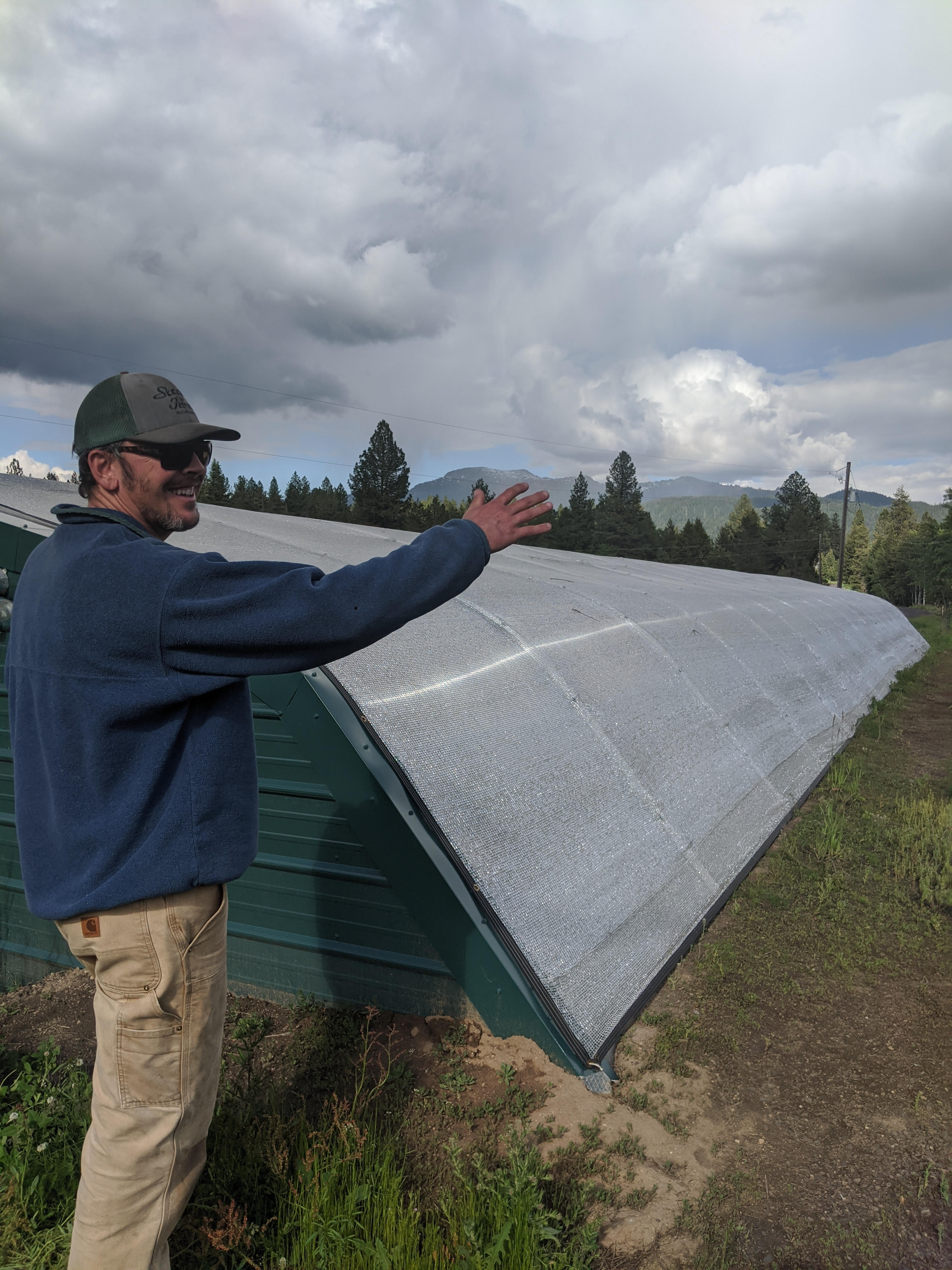
You have an incredible greenhouse with an innovative heating and cooling system. Can you tell us about it? What are the pros and cons?
Our greenhouse leverages passive solar energy and thermal mass as it is dug into the ground 4 ft below grade. This allows the mass (dirt) to be heated on sunny days and then that heat is released back into the greenhouse when the sun isn’t shining. It also has air tubes buried 8 ft below grade around the greenhouse. We blow air through the tubes which pick up the Earth's heat at that depth and allows us to heat the greenhouse with very little expense. The combination of the passive solar and geo air tubes allows us to grow cold weather crops throughout the McCall winters and allows us to grow tomatoes, cucumbers, peppers and other warm climate crops in the summer. The primary downside to this greenhouse is the overall cost to build it as it is more costly than building a traditional greenhouse, but it is much cheaper (and possible) to keep it from freezing in a harsh winter environment such as McCall. The simplicity of the heating system also means we can’t control the heat in a very fine tuned way, the design simply allows you to keep it from freezing on very cold nights.
With the long shut down from COVID 19, local food sources are more important than ever. Have you seen in increase in community support in 2020?
We have always seen a huge amount of support from the McCall community, but yes, we’ve definitely seen an uptick in folks seeking out locally grown produce over the past several months.
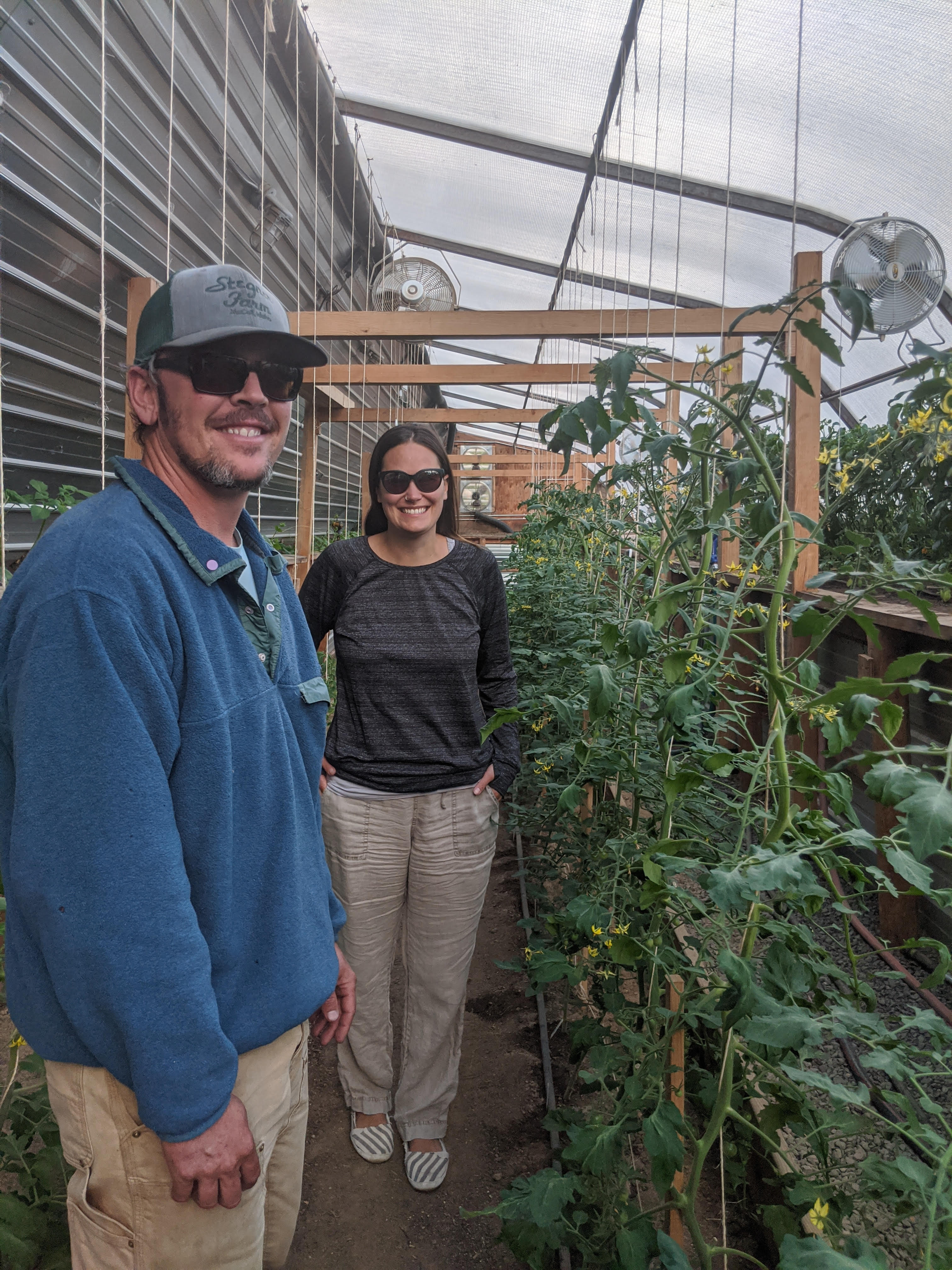 What challenges have you faced as an independent local business owner, and how have you met those challenges?
What challenges have you faced as an independent local business owner, and how have you met those challenges?Starting a new business is challenging, especially when you’re starting a business that you’ve never done before. We’ve always had a garden, but growing enough food for a larger community beyond your own family is quite a bit different. So, the learning curve on that has been interesting. I read a lot of books on growing and talk to other farmers when I can. I’d also say growing vegetables in the West Central Mountains is not the simplest thing to do and there are no real templates or tutorials on how to do it. So, we have a lot of trial and error going on, just like any other gardener.
What do you feel is the impact of local farms on McCall, and what does the future look like for market gardens in the West Central Mountains?
I think local farms impact any community in a very large way. Access to local and healthy food impacts so many things in a community beyond just providing good meals, and the West Central Mountains is no different. I think the future of market gardens in this area is hard to predict. On one hand, the community is amazing and incredibly supportive of their local producers, but market gardening is a small margin business even in climates that are easier to grow in. So, we’ll have to continue to be innovative on how to grow produce outside our typical growing season and create unique farming and business models not found in other places. This makes it exciting, but also challenging to predict the future as we’re still trying to figure it out.
What do you enjoy most about owning your market garden in the McCall area? What inspires you? What is the most difficult part?
What I like most is that I get to do something I’m passionate about in a community that truly appreciates it. The other producers and food businesses in the area inspire me. It’s such an amazing group of businesses that are very supportive of one another. The most difficult part is figuring so many things out through failure. That is just part of growing, but in McCall we often only have one opportunity a year to try new techniques or approaches, so the learning curve can be slow, but you have to somewhat appreciate that as a grower. At the same time, you have to have a lot of patience to be successful.
Are you involved in any community organizations?
The West Central Mountain Food Coalition, the Donnelly Farmers Market and the McCall Farmers Market are the three organizations I’ve been most involved in thus far. Mary is obviously very involved in the McCall Donnelly School District and is also on the board of the Donnelly Public Library.

What have been your most successful outlets for your produce?
The Farmers Markets are where we sell most of our produce. I’ve also partnered with North Fork Coffee Roasters to have winter produce sales at their coffee shop when the farmers markets aren’t open. We’ve also sold smaller amounts of produce to local restaurants. More recently we’ve had success selling produce online for pick-up at our farm.
Has social media been an effective advertising tool for Stegner Farm?
It has been very effective. Instagram and Facebook have both been excellent avenues for us to let customers know when we have produce available for sale. They also help us connect with our customers and share what is going on at our farm as we don’t get to have as frequent contact with our customers given the nature of our business.
You have participated in the WCM Food Coalition from the first year. What do you think the benefits are of bringing the community together through a local food coalition?
Bringing various groups together to discuss the local food system is more important today than it ever has been. There is a resurgent demand for knowing where your food comes from, and to connect producers with consumers, but the broader food system has moved in the opposite direction over the last 20 (or more) years. Local food coalitions are part of the puzzle to rebuilding what has been lost to industrial agriculture.
What advice would you give a beginning grower in the West Central Mountains?
You can grow things here. I think there is a tendency for many people to think it is nearly impossible to grow vegetables in a high mountain area like ours, but there are plenty of people proving this wrong. You might have to get creative if you want to grow certain crops, but it is possible and very rewarding. And as more people give it a try, we’ll collectively be able to provide more of our community's food.


